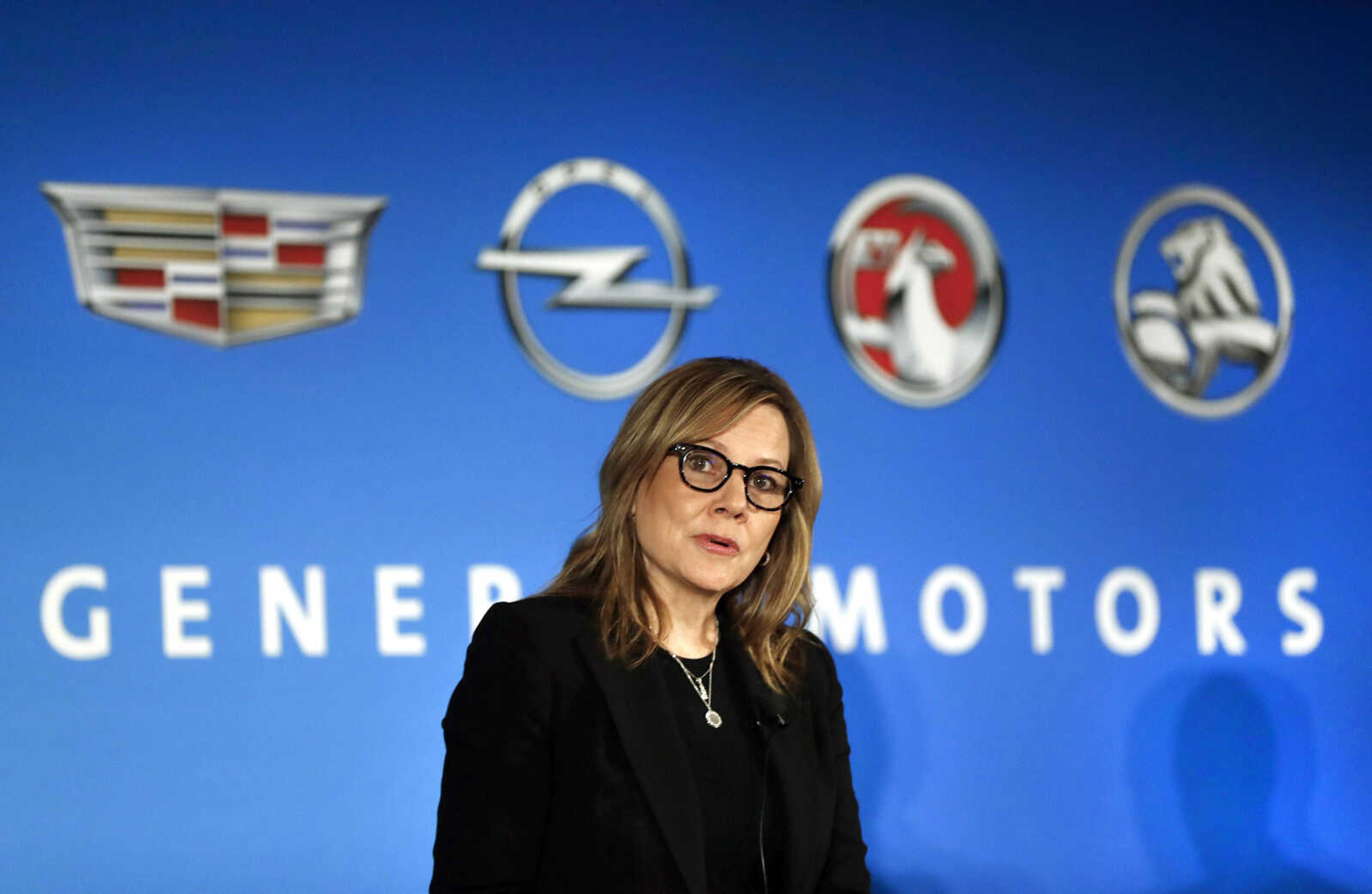GM to add or keep 7,000 U.S. jobs, make $1B factory investment
DETROIT -- General Motors plans to invest $1 billion in U.S. factories and add thousands of new white-collar jobs, measures that have been in the works for years but were announced Tuesday after criticism from President-elect Donald Trump. In all, the Detroit automaker said it will create or keep 7,000 jobs in the next few years, including about 2,000 at factories. ...
DETROIT -- General Motors plans to invest $1 billion in U.S. factories and add thousands of new white-collar jobs, measures that have been in the works for years but were announced Tuesday after criticism from President-elect Donald Trump.
In all, the Detroit automaker said it will create or keep 7,000 jobs in the next few years, including about 2,000 at factories. Another 5,000 new positions will be created at its auto-financing arm and to develop advanced technology, electric and autonomous vehicles and information technology.
Trump has demanded the auto industry build more cars in the U.S. GM said these latest actions have been in the works since well before the election, although spokesman Patrick Morrissey acknowledged it's a good time to announce new jobs in the U.S. Trump will be sworn in as the nation's 45th president Friday.
"There's no question there is an emphasis on job creation in the U.S. right now," he said. "This is good timing for us to share what we are doing."
Morrissey said most of the new positions would be in Michigan, with exact locations to be revealed at a later date. The long-planned new white-collar jobs will come in the next two or three years.
GM said the factory investment will create or keep around 1,500 jobs at unspecified factories. In addition, 450 new pickup truck axle-making jobs that will be moved to Michigan from Mexico. GM also said an unidentified company that will make parts for the next-generation pickups will move 100 jobs from Mexico to Michigan.
Trump has attacked GM and other automakers for building vehicles in Mexico and shipping them to the U.S. He has threatened to impose a 35 percent border tax on automotive imports from Mexico.
Ford Motor Co., Hyundai Motor Co. and Fiat Chrysler Automobiles U.S. LLC also recently have announced large investments in their U.S. operations and the creation of new jobs. It's a pattern of auto companies making routine jobs announcements to head off criticism from Trump, who made keeping U.S. factory jobs a key element of his campaign.
"General Motors' announcement today is mostly theater to play in the news cycle created by President-elect Trump's tweets," said Michelle Krebs, an auto-industry analyst for Kelley Blue Book. "These investments and hiring plans have long been in the works."
Still, Trump claimed credit for bringing auto jobs on Twitter on Tuesday morning. "With all of the jobs I am bringing back into the U.S. (even before taking office), with all of the new auto plants coming back into our country ... I believe the people are seeing 'big stuff,'" he wrote.
His tweet was only partially true. No automaker has announced plans to build a new U.S. factory in recent years, but jobs have been added at existing plants.
On the eve of the Detroit auto show last week, GM CEO Mary Barra said the company has no plans to change where it produces small cars in light of Trump's threats. Trump threatened GM with a tax for importing some Chevrolet Cruze hatchback compact cars from Mexico. Most Cruzes sold in the U.S. are sedans built in Ohio.
GM said it has invested more than $21 billion in the U.S. and created 25,000 jobs, including 19,000 white-collar and 6,000 blue-collar positions since it left bankruptcy protection in 2009.
Earlier Tuesday, Hyundai said it will significantly increase its investment in the U.S. while Trump is president and is considering building a new U.S. factory. It didn't provide further details and denied political pressure was behind the company's announcement of a $3.1 billion U.S. investment plan by 2021.
Earlier this month, Ford announced it had scrapped plans to build a new $1.6 billion small-car factory in Mexico while Fiat Chrysler announced a $1 billion investment plan in its two U.S. factories.
Although Ford announced plans for 700 new jobs in Michigan, it still plans to build the compact Ford Focus in Mexico, but at an existing factory. Jobs at the plant that now builds the Focus in suburban Detroit will remain because the plant will build a new SUV and small pickup truck.
Fiat Chrysler's job announcements were part of a plan announced last year to get out of the small and midsize car business and shift production to trucks and SUVs, including a new Jeep pickup.
Nearly all automakers build small cars in Mexico to take advantage of its lower wages to offset lower prices and profit margins on the cars.
Connect with the Southeast Missourian Newsroom:
For corrections to this story or other insights for the editor, click here. To submit a letter to the editor, click here. To learn about the Southeast Missourian’s AI Policy, click here.










